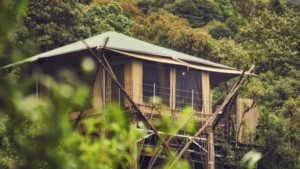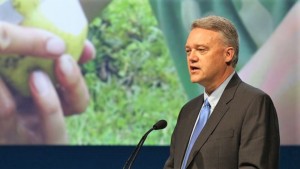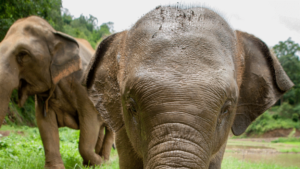Hey, tourism! Shouldn’t the needs of host communities ALWAYS come first?
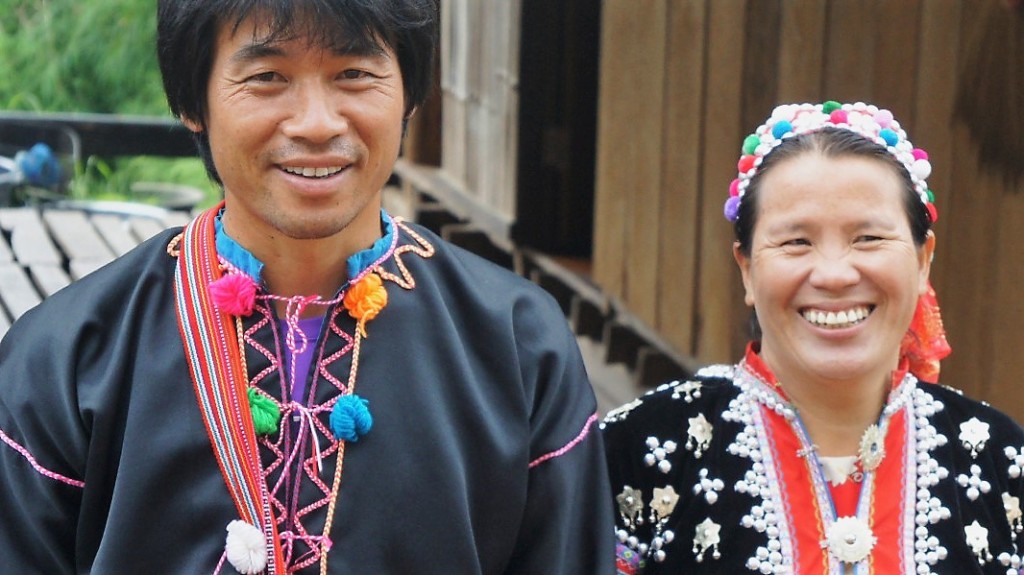
The principles of community-based tourism should be at the centre of ALL categories of tourism — niche or mainstrean; urban or rural; cultural or nature-based; eco- or adventure; gastronomic or party; mountain or beach … you get the idea. Therefore, the needs of the host community must always be considered before the needs of visitors.
This is what Catherine Germier-Hamel believes. The Founder & CEO of Millennium Destinations moderated the breakout session about Community Benefit Through Tourism on the day two of the 2019 GSTC Asia-Pacific Sustainable Tourism Conference, February 29.
Ms Germier-Hamel’s assertion, if it is to be accepted, overturns the highly flawed marketing idea that “the customer is always right”. “Tourism”, particularly the “mass” variety, has been industrialised. It often panders to the needs of the least sophisticated. (But who’s judging?) Travel in its purest form should be about exploration, discovery, and surprise.
Sophisticated travellers are open to unique experiences they cannot get at home. And community-based tourism (CBT) is an “experience enhancer”, Ms Germier-Hamel asserted. Tourists are a temporary part of the communities they visit. As guests, the onus is on tourists to learn as much as they can about local etiquette and customs, she said.
Naturally, the needs and wants of many host communities include development, job creation, and rising living standards. Thus a key CBT objective is to maximise the economic benefits by minimising economic leakage. Major leaks Ms Germier-Hamel identified included: tourism distribution channels; sourcing food, goods, services, and staff from outside the host community; and top-down government meddling.
Joining Ms Germier-Hamel on stage as panellists for the session were:
- Jaranya Daengnoy, Director, Thailand Community Based Tourism Institute (CBT‑I)
- Panot (Tung) Pakongsup, Asia Field Manager, Planeterra Foundation
- Nithi (Nutty) Subhongsang, Co-founder, Nutty Adventures
- Dr Jaturong Pokharatsiri, Professor of Architecture, Thammasat University, Thailand; Vice-President of ICOMOS International Cultural Tourism Committee
Fostering leadership
Ms Daengnoy described the CBT model deployed by her organisation, which emphasised strong leadership bolstered by “community participation” and “advisors” — presumably professional advisors or consultants.
The objective of the model is to “make a difference” through story-telling and interpretation of destination highlights, and by “bridging the gaps” or sharing the benefits of tourism with neighbouring communities.
Creating ripples
Mr Pakongsup said that where there is a lot of travellers and a community need then Planeterra helps design social enterprises with the “tourism value chain in mind”, delivering products based around food, experiences, crafts, accommodation, and even transport.
Working with community groups — especially women, youth, cultural groups and environment groups — Mr Pakongsup’s job is to ensure that social enterprises are self-sustaining and create a “ripple effect”.
Managing expectations
Mr Subhongsang pointed to the promotion cycle — awareness, understanding, like, love, and passion — as he described his efforts to develop community-based tourism products. A big challenge he faces is managing the expectations of local people who are already passionate about CBT plans and are keen to improve their livelihoods through tourism.
“CBT takes time,” he has to tell them. Results won’t come overnight.
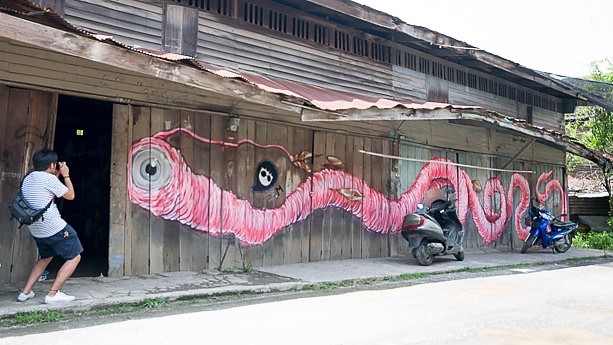
Tapping flows
Dr Pokharatsiri asked how local government can support CBT, especially in urban areas, and then pointed to an example that he said is working well.
Ban Pong in Ratchaburi Province, to the west of Bangkok, is where the state railway splits to the northwest (to Kanchanaburi) and the south (to Singapore). Anyone who has ever taken a train on these lines rolls through Ban Pong but very few ever got off.
The local government saw an opportunity to tap into these flows. They realised that even if a few passengers were to disembark for a few hours or an overnight stay they would inject welcome economic activity into the town. The challenge was to make a statement that would entice the curious to stop and stay.
Street art, including graffiti, makes a statement. Thus the administration worked with local artists and property owners to enliven facades, walls, abandoned structures, and government buildings. Thanks to its vibrant “Urban Art Terminal Exchange”, Ban Pong now attracts more visitors. They walk around town, take photos, interact with locals, buy food and beverages, and even stay a night or two.
For imagining CBT in the context of an urban environment, Dr Pokharatsiri offered the following key words: Everyday; People; Visitor; Space; and Culture.
Featured image: Happy hosts of a Mae Hong Son Hilltribe Trek, a Planeterra Foundation community-based tourism project in Thailand.



